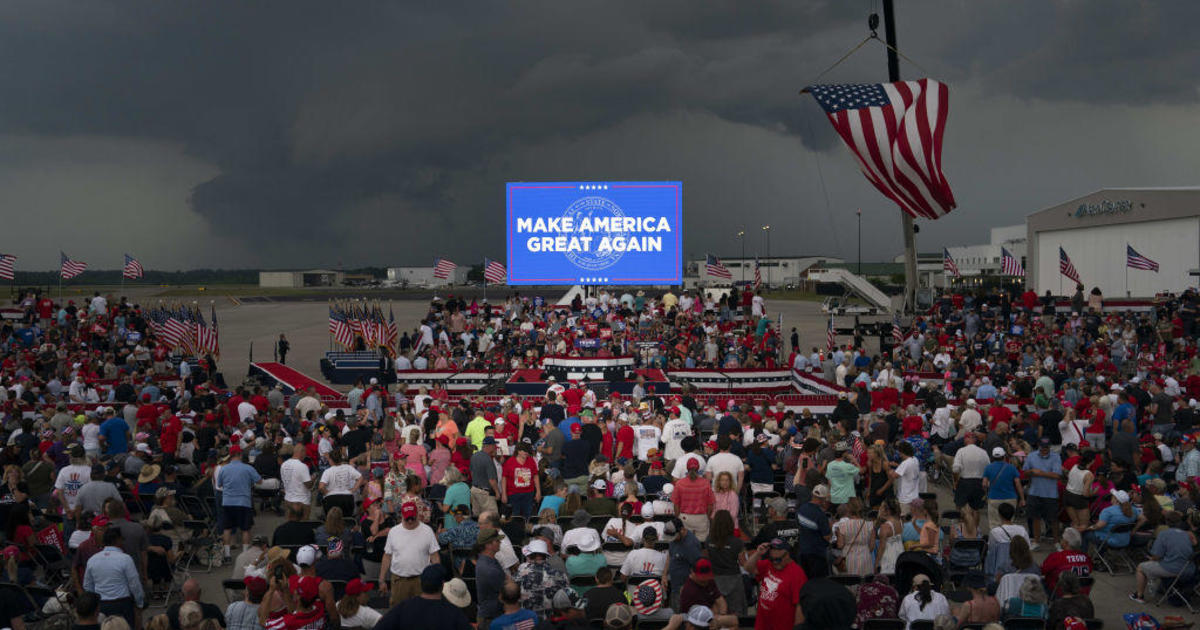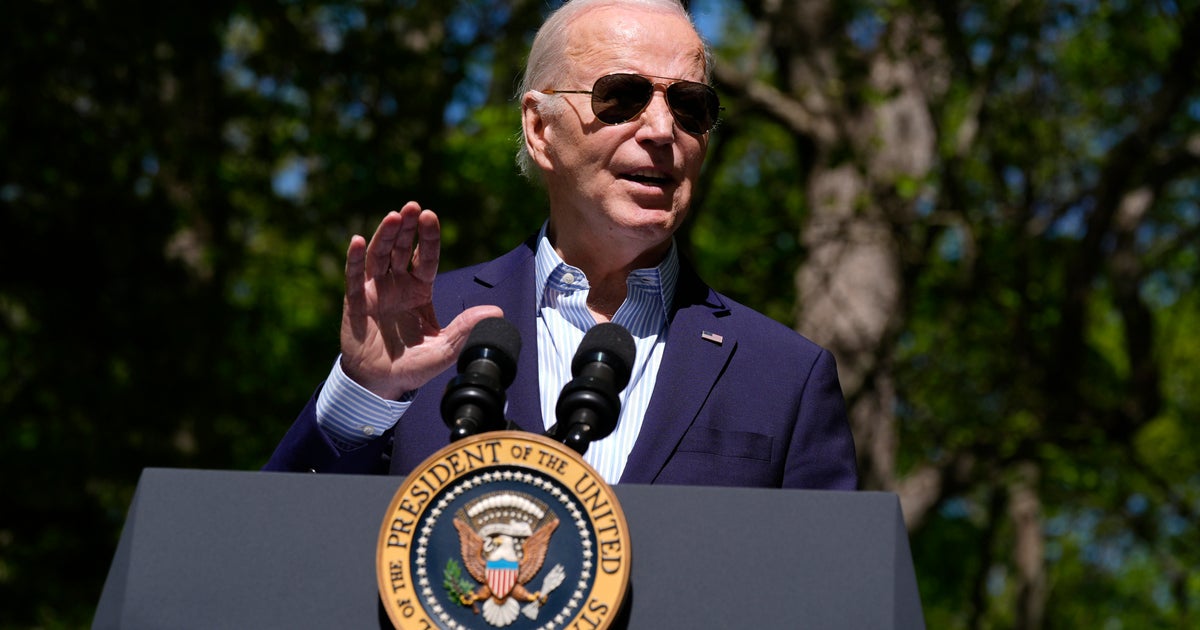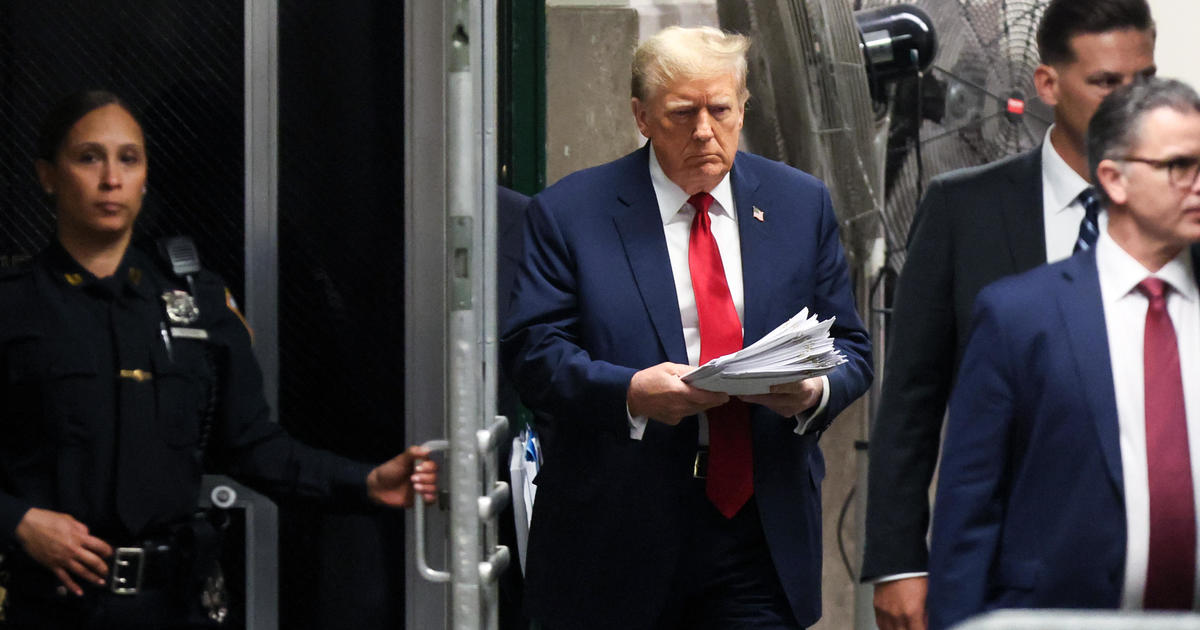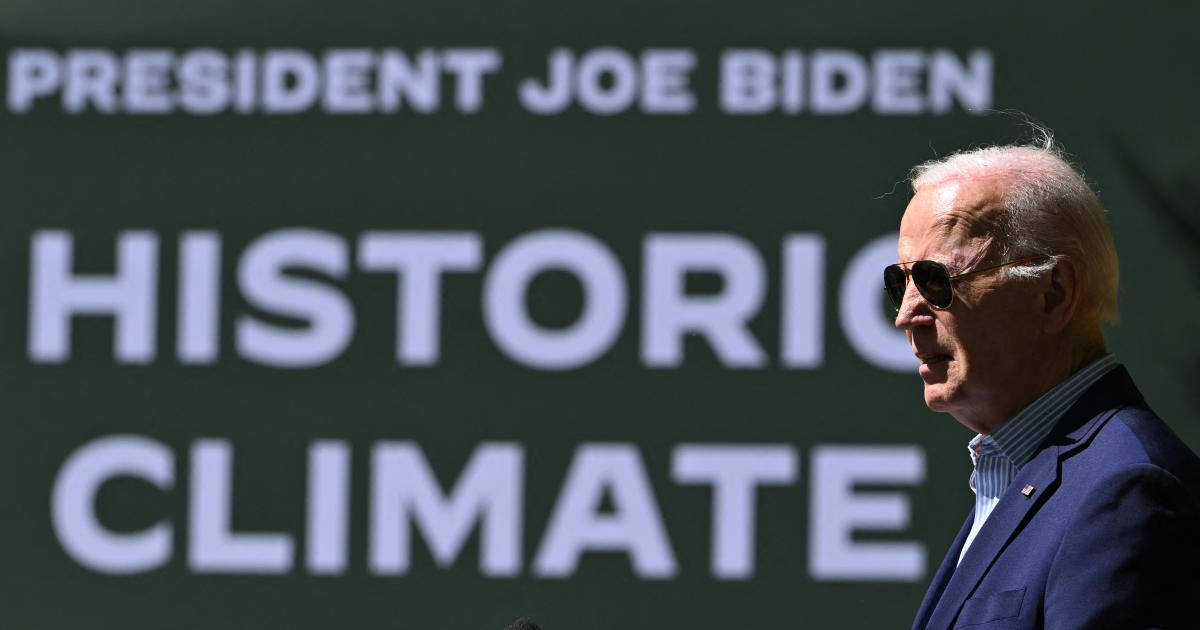2020 Daily Trail Markers: Bloomberg qualifies for next two debates
Former New York City Mayor Mike Bloomberg will be appearing on the Nevada debate stage Wednesday after qualifying just under the deadline. The latest poll by NPR/PBS NewsHour/Marist shows him in second place at 19% just behind Bernie Sanders at 31%, report CBS News correspondent Nikole Killion and CBS News political unit associate producer Sarah Ewall-Wice. It's his fourth debate qualifying poll showing him in double digits within the time frame candidates had to qualify.
It will be the first time Bloomberg will be face-to-face with his 2020 Democratic presidential rivals on a debate stage. The last time Mr. Bloomberg had to debate an opponent was in 2009 during his re-election campaign for mayor. Campaign aides tell CBS News former and current staffers have been preparing Bloomberg for a possible debate, and they expect him to draw attention from fellow candidates in the field given his newcomer status and recent rise in the polls.
Tuesday afternoon, Elizabeth Warren tweeted, "It's a shame Mike Bloomberg can buy his way into the debate. But at least now primary voters curious about how each candidate will take on Donald Trump can get a live demonstration of how we each take on an egomaniac billionaire."
On the campaign trail Tuesday in Nevada, Sanders also slammed the multi-billionaire. "We're gonna win this election not because we are buying the airwaves as Mr. Bloomberg is." It was the latest in a series of attacks this week between the Vermont Senator and former mayor who has spent upwards of $415 million on ads for his presidential bid.
Candidates had until 11:59 p.m. Tuesday evening to qualify for the ninth Democratic presidential debate in Las Vegas. Joe Biden, Pete Buttigieg, Amy Klobuchar, Bernie Sanders, and Elizabeth Warren will also be on the debate stage.
CENTER STAGE
UP NEXT
Less than a day after qualifying for Nevada, Mike Bloomberg has now qualified for the South Carolina debate hosted by CBS News. CBS News political unit associate producer Sarah Ewall-Wice says he's the sixth candidate to qualify for the South Carolina debate before the February 24th deadline. Joe Biden, Pete Buttigieg, Amy Klobuchar, Bernie Sanders and Elizabeth Warren have all qualified through pledged delegates from New Hampshire and Iowa or polling.
Tom Steyer and Tulsi Gabbard have not yet qualified. Bloomberg met the threshold with Quinnipiac, Monmouth, NPR and NBC polls. For South Carolina, candidates can also qualify based on the delegate results out of Nevada on February 22.
FROM THE CANDIDATES
MICHAEL BLOOMBERG
Mike Bloomberg has been steadily rising in public opinion, even though he skipped the first contests in Iowa and New Hampshire, and is also not on the ballot in Nevada or South Carolina, the next two races, report CBS News campaign reporter Tim Perry and CBSNews.com political reporter Grace Segers.
Bloomberg, a multi-billionaire, has been pouring money into advertising for his campaign, with a heavy focus on delegate-rich Super Tuesday states. This has allowed him to gain name recognition and present his best case to the public with inescapable ads, but Wednesday's debate will mark the first time that he will have to deflect attacks from his opponents in real time. Bloomberg has combatted a series of controversies since launching his campaign, including the stop-and-frisk policy implemented during his tenure as mayor, previous crass comments about women and an alleged culture of sexual harassment at his company.
He has apologized for stop-and-frisk and attempted to reframe his history on criminal justice, releasing three plans on criminal justice reform Tuesday morning. The former New York City mayor has touted endorsements from key black lawmakers, including Congressional Black Caucus members like Representative Lucy McBath, a freshman who ran on a platform of supporting gun control reform. Hank Sheinkopf, a New York Democratic operative who has previously worked with Bloomberg but is unaffiliated in the primary, said that Bloomberg's opponents on the debate stage will "try to slow down his momentum any way they can." "You name it, they'll throw it at him," Sheinkopf said.
Campaign advisers and operatives who have worked with Bloomberg in the past are playing the roles of other candidates in preparations for the former New York City mayor, who last participated in a political debate during his 2009 mayoral campaign. According to the campaign, Marc LaVorgna is playing former South Bend, Indiana Pete Buttigieg, Marcia Hale is playing Senator Amy Klobuchar, Howard Wolfson is playing Senator Bernie Sanders, Julie Wood is playing Senator Elizabeth Warren and Bradley Tusk is running the process.
Bloomberg will have to make his points quickly, within the limited time frame of a debate question, while fending off attacks by his competitors, who have already been targeting him for criticism over the use of his wealth in the primary process.
There's no indication that Bloomberg will be apologetic about his wealth, however, since it has enabled him to fund significant campaigns on gun control and climate change, and help propel several Democrats to victory in the House. Sanders and Warren in particular have made taxing the ultra-wealthy key planks of their campaigns, a means of funding the government programs they would implement if elected.
Bloomberg's campaign sees both advantages and disadvantages to his likely status as the center of attention. If he is a frequent target of all other candidates, that could cement him as a front-runner in the minds of voters. However, the campaign is also wary of seeing Bloomberg fending off attacks all night.
"I think he's got a lot of imperatives going into tomorrow night. It will be his first time on the national debate stage, so he will have to make a positive first impression on the millions of people who don't know a lot about him," said Robert Barnett, a Washington attorney who has worked on ten presidential campaigns since 1976. "He'll have to respond to the many criticisms swirling around him in a thoughtful way and a thorough way and not get angry and not be evasive."
"With all that on his plate, he will also have to decide whether to cross-attack, and not just defend but go on the offensive against the others on the stage," Barnett continued. "You've got all those things that will be in his mission statement, and he will have to do all of that in the context of a very lively and loose format which is alien to him."
Sheinkopf expressed confidence that Bloomberg will stay calm during the debate. "You're not going to see Mike Bloomberg lose his cool and lose his poise," Sheinkopf said. Bloomberg's campaign has already tussled with that of Sanders, perhaps indicating conflict which will come to a head on stage Wednesday evening.
Bloomberg's campaign released an ad over the weekend slamming Sanders supporters who have threatened to "blacklist" Bloomberg staffers and supporters. Bloomberg's campaign manager, Kevin Sheekey, indicated with a tweet on Tuesday that there is "damaging" and possibly "disqualifying" opposition research on Sanders. Bloomberg has also repeatedly emphasized the need for "evolution" instead of Sanders' call for "revolution." Sanders, meanwhile, has criticized the rule change which allowed Bloomberg to qualify for the debate, as the qualifications no longer include a unique-donor threshold.
"I guess if you're worth $60 billion, you can change the rules. I think that is very, very unfortunate," Sanders said on "CBS This Morning" Friday. However, Bloomberg, like Biden, will focus mainly on the issue of electability when confronting Sanders. Fundamentally, Bloomberg believes that he can make the better case for being able to defeat President Trump than Sanders. If the top issue for voters is beating Mr. Trump in the election, the Bloomberg campaign believes this will work well for the candidate on the stage tomorrow night and in the primaries going forward.
BERNIE SANDERS
While there are only four days until the Nevada caucus, Sanders has spent the last four crisscrossing Super Tuesday states. Over President's Day weekend, Sanders went from North Carolina, to Texas, to Colorado, to a California, to Washington, and back to Nevada for two events Tuesday. Foregoing smaller towns halls, Sanders was filling up arenas, convention halls, and theaters, addressing over 50,000 people in all.
How are the masses responding? Sanders supporters are particularly boisterous when the senator takes on the establishment, and more recently popular, Mike Bloomberg. In Richmond, California, Sanders told the screaming crowd, "I hear the establishment saying, 'Oh, Bernie can't win the election.' Take a look at this crowd today, and tell me we can't win the election."
He told supporters in Carson City, "What Mike is trying to do — that's right, let's give him a little bit of help here. He's trying. The man's struggling. And in the midst of his 60 billion, he says, 'Hey, you know I used to be mayor, kinda retired now. I know what I'd like to do. I'd like to become president of the United States. Hey guys, how do I buy the presidency?'"
The criticism of Bloomberg and the system that allowed him to appear on the debate stage resonate with Sanders supporters. CBS News campaign reporter Cara Korte says it will be interesting to see how Sanders handles Bloomberg once they're face to face. If all the other candidates on stage are going after the former NYC mayor as well, how will Sanders own the anti-Bloomberg moment?
Separartely CBS News campaign reporter LaCrai Mitchell says the South Carolina campaign for Sanders launched its first statewide television ad in South Carolina Tuesday, featuring Richland County Councilwoman Dalhi Myers who announced last month that she would be endorsing Sanders after formerly supporting former Vice President Joe Biden.
In the ad, which features footage from some of Sanders' campaign rallies that boast thousands of voters, Myers said that beating President Trump is the number one priority but she also credited the energy he's garnering as one of the reason's she supporting Sanders.
"I switched from the Biden campaign to the Sanders campaign because I want to see the kind of lines around the building that we saw in 2008," said Myers in the TV ad referencing the excitement that then-candidate Barack Obama incited in voters during his first presidential run. "I want to see people motivated to get out and vote for a candidate that they believe in. This campaign's got the movement. We've got the momentum."
TOM STEYER
While Democratic hopeful Tom Steyer is not slated to make it onto tomorrow's debate stage in Nevada, CBS News campaign reporter LaCrai Mitchell says the former hedge fund manager made his ninth trip to South Carolina Monday and told voters that he needed their support ahead of the state's presidential primary contest on February 29.
Holding town halls in the more conservative part of the state, Steyer told Democrats that his plan is not to convince Republican voters to support his message but to instead motivate voters who usually sit home to get out and make their voices heard.
"There are tens of millions of Americans who don't vote and they don't vote because they think both parties lie. Nobody cares about them…they tend to be young, they tend to be black people, they tend to be Latinos, and they're all Democrats," said Steyer during a town hall Monday evening.
"South Carolina matters so much in 2020 because if we're going to beat Donald Trump and beat his whole gang, then we have to show up and that means all of us. And whoever is going to be the Democratic nominee has to be able to talk to the glorious diversity that is America, and that is South Carolina and that is the Democratic party."
Dallas Conyers who is an associate minister at a local church in Spartanburg, says that with less than two weeks until the state's primary contest, she's deciding between Steyer and Sanders because they represent the two best chances at defeating the president.
"I love Warren's ideas but I don't think this country's going to vote a woman into office right now, misogyny is just a fact that we're dealing with. I like Mayor Pete's ideas especially on environment but he has a different sexual orientation than many Americans are going to be willing to band together and vote [Trump] out," said Conyers. "Unfortunately it's not so much about policy, it's about personal prejudices that other Americans will hold that I'm using to weigh my vote in the primary."
STATE-BY-STATE
NEVADA
CBS News campaign reporter Alex Tin says the Nevada State Democratic Party is wrapping up its fourth and final day of early voting today, ahead of Caucus Day on February 22. The party says more than 36,000 Nevadans cast presidential preference cards over the first three days, following last-minute and closely-scrutinized changes to the process in the wake of the delayed Iowa caucus results. Some Nevadans were frustrated by hours-long waits at some locations in the state over the past few days.
Behind the scenes, some campaigns have spun up boiler room operations closely tracking their progress getting supporters out to cast their early picks. The Sanders campaign boasted Tuesday that its mammoth organizing team had knocked on more than 200,000 doors over the past few weeks. And looking ahead to caucus day, the Buttigieg campaign said today it has recruited more precinct captains in all 16 of Nevada's counties over just the past week.
TEXAS
Early voting is underway in Texas, the state with the second largest delegate prize in the Democratic nomination. Voters will have until February 28 to cast ballots ahead of the state's Super Tuesday primary.
Others will be able to vote by mail before primary day. CBS News campaign reporter Adam Brewster says that means many Texans will be voting before results are in from Nevada and South Carolina.
In 2016, data from 15 counties shows about 450,000 Texans voted early or by mail in the Democratic Primary. There are 228 pledged delegates at stake in Texas. The majority are allocated by results in state senate districts and the rest are allocated by statewide results. In 2016, Sanders lost to Hillary Clinton by more than 30 points in Texas.
But Sanders maintains a strong base of support in the state and sat atop the most recent Texas Tribune/University of Texas presidential primary poll as the top choice for 24% of respondents. He was followed by Joe Biden (22%), Elizabeth Warren (15%), former Mike Bloomberg (10%) and Pete Buttigieg (7%). Amy Klobuchar and Tom Steyer were both at 3%. Some of the poll was taken before the Iowa caucuses and has a margin of error of +/- 4.09%.
"We're going to win the state of Texas," Sanders declared at a rally on Friday night near Dallas with more than 5,000 people in attendance. Sanders has about 10 staffers here now and 5 offices around the state, but a network of hundreds of super volunteers who the campaign says has been helping organize events.
Sanders is also the only candidate outside of Mike Bloomberg with any presence on the airwaves. He's spent and reserved about $3 million worth of ads, according to Kantar/CMAG. The state will be a key test for Bloomberg, who has spent and reserved almost $34.5 million on advertisements in the state according to Kantar/CMAG.
Bloomberg also has by far the largest presence from a personnel standpoint with 160 staffers and 17 offices that reach beyond Texas' major metro areas. Bloomberg has also made 5 visits to the state since announcing his candidacy in late November, far more than any other candidate during that stretch. During his trip last week, he picked up an endorsement from Houston's Mayor Sylvester Turner.
Biden lead Texas polls earlier in the race, but some strategists have questioned how strong his support will hold if he continues to slide in early state contests. He has staff on the ground in several cities around the state and offices in Houston, Dallas and Austin. Biden also boasts some of the most notable endorsements from Texas congressional representatives, including members of the Congressional Black Caucus and Congressional Hispanic Caucus, and Texas state legislators.
Warren built out the earliest large operation in Texas, much as she did in early states and other Super Tuesday states. She has dozens of staffers around the state and four offices in San Antonio, Austin, Houston and Fort Worth. Her campaign just finished a LatinX engagement tour across the state last week. Buttigieg and Klobuchar will be looking to capitalize on any momentum they may continue to see from early states.
Buttigieg on Monday sent 24 staffers to the state looking to build on the work that the campaign says has been led by thousands of volunteers. Klobuchar's campaign says they plan to add staff to Super Tuesday states. Steyer's campaign opened a Houston office last week. He has spent almost $195 million in advertisements around the country, but has not bought local advertisements in Texas.
CONGRESSIONAL COVERAGE
IN THE HOUSE
The special election primary for Wisconsin Congressman Sean Duffy's seat wraps up tonight, as Veteran Jason Church and State Senator Tom Tiffany compete to be the Republican nominee for the safely-red seat, which was previously held by Sean Duffy before he resigned due to family health concerns in September 2019.
Church and Tiffany have both been running on how much they support the president, since this is a district Trump won by over 20 percentage points in 2016.
"President Trump needs proven reinforcements in Congress, to stem the tide of socialism, to keep our economy flowing strong, and because nobody knows how to drain the swamp like a dam man," Tiffany, an actual dam tender, said in one of his latest ads.
Church has been leaning on his political outsider viewpoint as a veteran, and has put out timely videos backing up Trump on Soleimani and on impeachment. There has also been a surprising amount of Republican attention and money spent for the safely-red seat. CBS News political unit broadcast associate Aaron Navarro says more than $2.5 million in independent expenditures has been poured into this race, mainly from groups like the Club for Growth Action, the House Freedom Caucus PAC and Americans for Prosperity Action, a Koch sister-organization.
Church has been endorsed by Turning Point USA, Congressman Dan Crenshaw of Texas and Senators Joni Ernst of Iowa and Tom Cotton of Arkansas. Tiffany has been endorsed by Duffy himself, Wisconsin Congressman Jim Sensenbrenner, who announced his retirement this term, and former Governors Scott Walker and Tommy Thompson.
Two Democrats, local school leader Tricia Zunker and Veteran Lawrence Dale, are running to flip the northern Wisconsin district. Zunker has raised more than $145,000 for her campaign, and is hoping to become the first woman and Native American to represent the district. She points to her experience as an associate justice of the Ho-Chunk Nation Supreme Court, as well as a president of the Wassau School Board.
Dale ran and lost as a Green Party candidate for this seat in 2014, and wants to focus on the economy and attracting new farmers to the district. The state board of elections said spring primaries tend to bring out 10 to 15 percent of the voting age population. The winners will face off in a May 12 special election general race.



